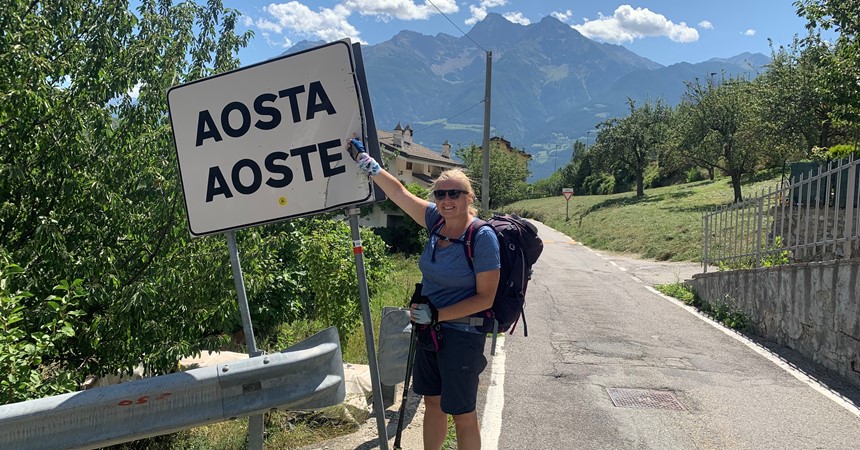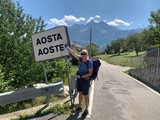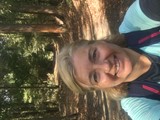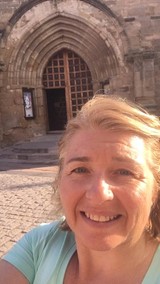After completing her HSC in 1989, Alison studied a Bachelor of Asian Studies, specialising in Korean language, at the Australian National University. While at ANU, her interest in politics led to opportunities to work as a staffer for several federal ministers including most recently as chief of staff to the Minister for Agriculture and Water Resources, David Littleproud. Before that, she worked on contentious public policy issues as chief executive of the Australian Livestock Exporters’ Council between 2012 and 2016. She is currently a director of specialist management consultancy Futureye.
What Catholic school/s did you attend? Do you know why your parents chose Catholic education for you?
I was very fortunate to attend St Clare’s High School from Year 9 to Year 12. In 1985, my parents semi-retired and we moved from Sydney to our holiday home in Harrington. I had attended an all-girls Church of England school in Sydney since third grade and my parents were conscious of finding a similar high-quality and disciplined school environment for me. They approached St Clare’s and thankfully I was accepted.
This edition of Aurora takes inspiration from the Season of Creation, which is celebrated in September. During the season we enter a time of restoration and hope, a Jubilee for our Earth. 2020 has been a year like no other. How has it influenced your perception on ways of living with creation?
2020 has certainly been a challenging year. I contracted COVID-19 in March and April and the experience reminded me of the fragility of our existence and how important it is to focus on the things that matter most. This has translated into investing more into becoming self-reliant and sustainable.
You have first-hand experience in community engagement, policy development and advocacy. What role do you think education plays in motivating change?
Education is a channel through which people are exposed to the world and all that comes with it. I think understanding just how large our universe is – physically and metaphorically – opens our minds to question our perception of the world we live in and the influences on our value sets. This process can stimulate and motivate a desire for change where for example, we see injustice or unfairness.
I also see education from a skills perspective being important to motivating change. Education, certainly in my experience, creates a space for people to become inquisitive about the world around them. Being inquisitive leads to skills such as critical thinking and strategic foresight, which are important to resolving many of the wicked problems in our society.
This process too helps develop soft diplomacy skill, such as having the ability to question current practice or thinking in a way that is non-threatening to others. Too often, change and the discussion of it, is seen in adversarial terms rather than as a reflection of maturing social values and norms. If we can view change in the context of the latter, we can create a mental bridge to a dialogue that is less combative and more inclusive, collaborative and respectful of difference.
You are a director of Futureye, a management company with a focus on sustainability, social licence to operate, risk and communications. In Laudato si’ Pope Francis focuses on the need to involve various stakeholders in discussions regarding important community matters. “Environmental impact assessment should not come after the drawing up of a business proposition or the proposal of a particular policy, plan or programme,” the Pope says. “It should be part of the process from the beginning and be carried out in a way which is interdisciplinary, transparent and free of all economic or political pressure.” What are your thoughts on this?
I wholeheartedly agree. Too often engagement in the context of planning approvals is done as a tick the box exercise – a one-way form of communications that treats “having your say” as the end point of community involvement in a decision-making process. We need genuine dialogue and co-design of assessment processes that provide genuine opportunity for people to engage, receive feedback and ultimately see how their input has influenced a policy or project design.
You have undertaken a few Catholic pilgrimage trails in Europe including the 800km Camino de Santiago in 2016 and then 300km of the Via Francigena from Besancon, France to Aosta, Italy in 2019. What inspired you to undertake these walks? And how did it influence your relationship with nature and/or your own spirituality?
There is something adventurous about packing all your needed belongings and hitting the road. It is romantic and exhilarating. I love walking, and the challenge of long distance had enthralled me for a long time so when the opportunity came after leaving a very stressful job in 2016 and then again in 2019, I did not need convincing. I loved every moment of each walk despite the blisters, the challenging terrain (more so on the Via Francigena), and the heat and exhaustion. The people and places along the path are amazing. There is a great sense of camaraderie – you never passed another walking without a friendly “Buen Camino” and a solo walker could always find friendly company at the end of a day. I have never felt happier, more content with myself and clearer about my life’s purpose. Walking under wide open skies, often alone, I felt closer to the world and the nature around me than ever before. I can’t say it was a religious experience for me, but it was a spiritual one, freeing me to deal with some personal demons and find a space to just be without judgment. I can’t wait to get back on the trail many times over.
































































































